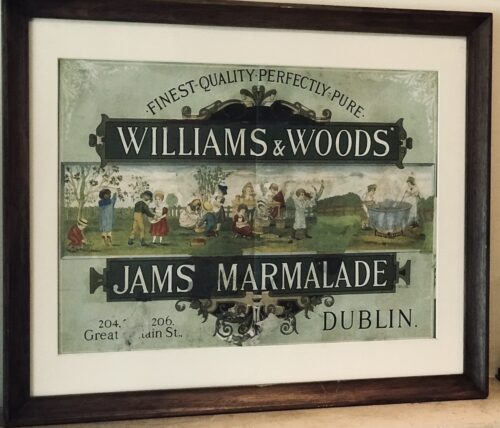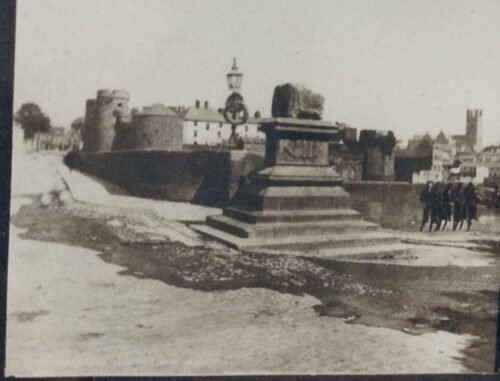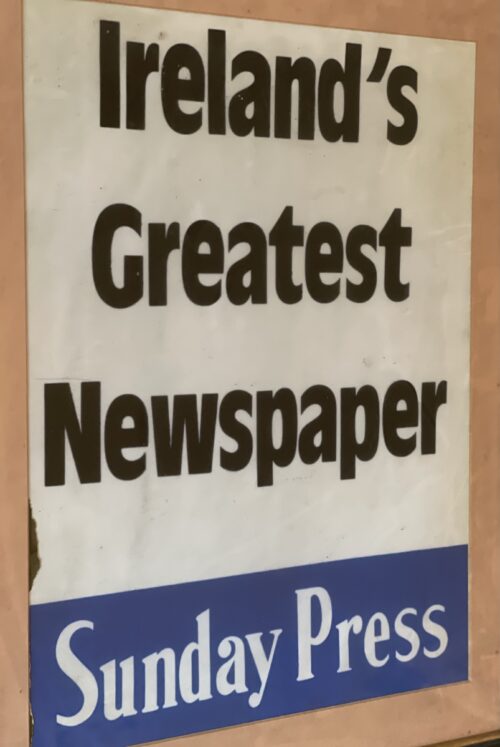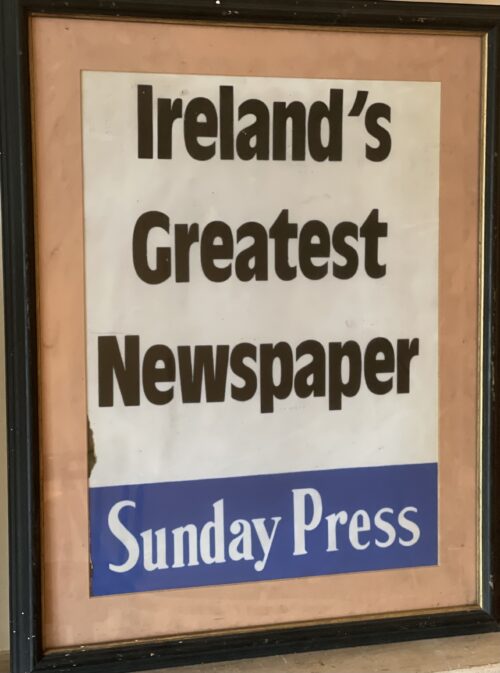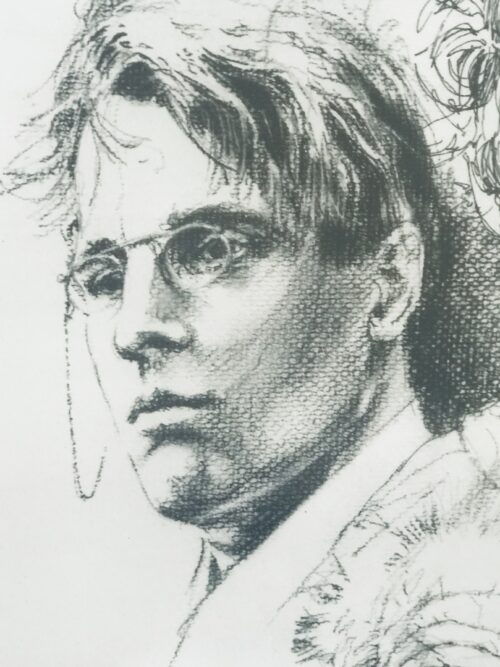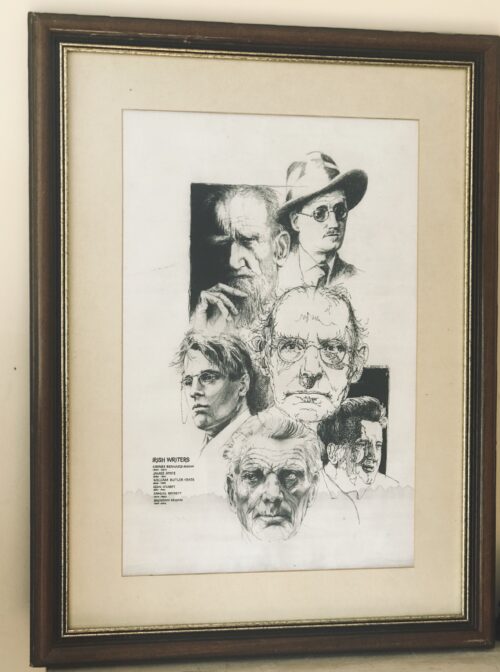Superb original painting from 1964 of the legendary author, playwright,wit,raconteur and bon vivant Brendan Behan and the familar facade of O'Donoghues of Baggott St,often frequented by Behan.The artist attributed is Edward Tomkins .
Brendan Francis Aidan Behan (christened
Francis Behan)
9 February 1923 – 20 March 1964) was an
Irish poet, short story writer, novelist and
playwright who wrote in both
English and
Irish. He is widely regarded as one of the greatest Irish writers of all time.
An
Irish republican and a
volunteer in the
Irish Republican Army, Behan was born in
Dublin into a staunchly republican family becoming a member of the IRA's youth organisation
Fianna Éireann at the age of fourteen. There was also a strong emphasis on
Irish history and
culture in the home, which meant he was steeped in literature and patriotic ballads from an early age. Behan eventually joined the IRA at sixteen, which led to his serving time in a
borstal youth prison in the
United Kingdom and he was also imprisoned in
Ireland. During this time, he took it upon himself to study and he became a fluent speaker of the
Irish language. Subsequently released from prison as part of a general amnesty given by the
Fianna Fáil government in 1946, Behan moved between homes in Dublin,
Kerry and
Connemara, and also resided in
Paris for a time.
In 1954, Behan's first play
The Quare Fellow, was produced in
Dublin. It was well received; however, it was the 1956 production at
Joan Littlewood's
Theatre Workshop in Stratford, London, that gained Behan a wider reputation. This was helped by a famous drunken interview on
BBC television with
Malcolm Muggeridge. In 1958, Behan's play in the Irish language
An Giall had its debut at Dublin's Damer Theatre. Later,
The Hostage, Behan's English-language adaptation of
An Giall, met with great success internationally. Behan's
autobiographical novel,
Borstal Boy, was published the same year and became a worldwide best-seller and by 1955, Behan had married
Beatrice Ffrench Salkeld, with whom he later had a daughter
Blanaid Behan in 1963.
By the early 1960s, Behan reached the peak of his fame. He spent increasing amounts of time in
New York City, famously declaring, "To
America, my new found land: The man that hates you hates the human race."
By this point, Behan began spending time with people including
Harpo Marx and
Arthur Miller and was followed by a young
Bob Dylan.
He even turned down his invitation to the
inauguration of John F. Kennedy. However, this newfound fame did nothing to aid his health or his work, with his medical condition continuing to deteriorate:
Brendan Behan's New York and
Confessions of an Irish Rebel received little praise. He briefly attempted to combat this by a sober stretch while staying at Chelsea Hotel in New York, but once again turned back to drink.
Behan died on 20 March 1964 after collapsing at the Harbour Lights bar in Dublin. He was given a full IRA guard of honour, which escorted his coffin. It was described by several newspapers as the biggest Irish funeral of all time after those of
Michael Collins and
Charles Stewart Parnell.
| O'Donoghue's Pub |

O'Donoghue's pub in central Dublin city |
|
|
|
| Address |
15 Merrion Row, Dublin 2 |
|
|
|
|
|
|
|
|
| Completed |
1789 as a grocery store |
| Opened |
1934 |
O’Donoghue’s Pub (also known as
O'Donoghue's Bar) is a historically significant drinking establishment located at 15 Merrion Row, Dublin 2, Ireland—near
St. Stephen's Green on
Dublin’s south side. Built in 1789 as a grocery store, it began operating full-time as a
pub when purchased by the O’Donoghue family in 1934.
This pub is closely associated with
Irish traditional music and was where the popular Irish folk group,
The Dubliners, began performing in the early 1960s.
Many other notable Irish musicians—including
Séamus Ennis,
Joe Heaney,
Andy Irvine,
Christy Moore,
The Fureys and
Phil Lynott—have played at O’Donoghue’s, and their photographs are displayed in the pub.
Included are portraits of The Dubliners themselves: the five founding members
Ronnie Drew,
Luke Kelly,
Ciarán Bourke,
John Sheahan and
Barney McKenna, as well as later members
Eamonn Campbell and
Seán Cannon; these photographs hang to the right of the entrance, where the nightly sessions are played.
O’Donoghue’s
It was August 1962
When I first set foot in O’Donoghue’s
A world of music, friends and booze
Opened up before me
I never could’ve guessed as I walked through the door
Just what the future had in store
A crossroads for my life I saw
Lying there to taunt me.
Andy Irvine wrote the tribute song "O'Donoghue's", in which he reminisces about his early days in Dublin—when he first started frequenting the pub in August 1962. The song was released on the album
Changing Trains (2007).
Dessie Hynes from Longford bought the bar from Paddy and Maureen O'Donoghue in 1977 and ran the pub with his family for 11 years.
In 1988, O’Donoghue’s was purchased by publicans Oliver Barden and John Mahon. Barden is still the proprietor and continues to run the pub with his family and staff to this day.
Origins :Dublin
Dimensions :27cm x 33cm



 D
D



